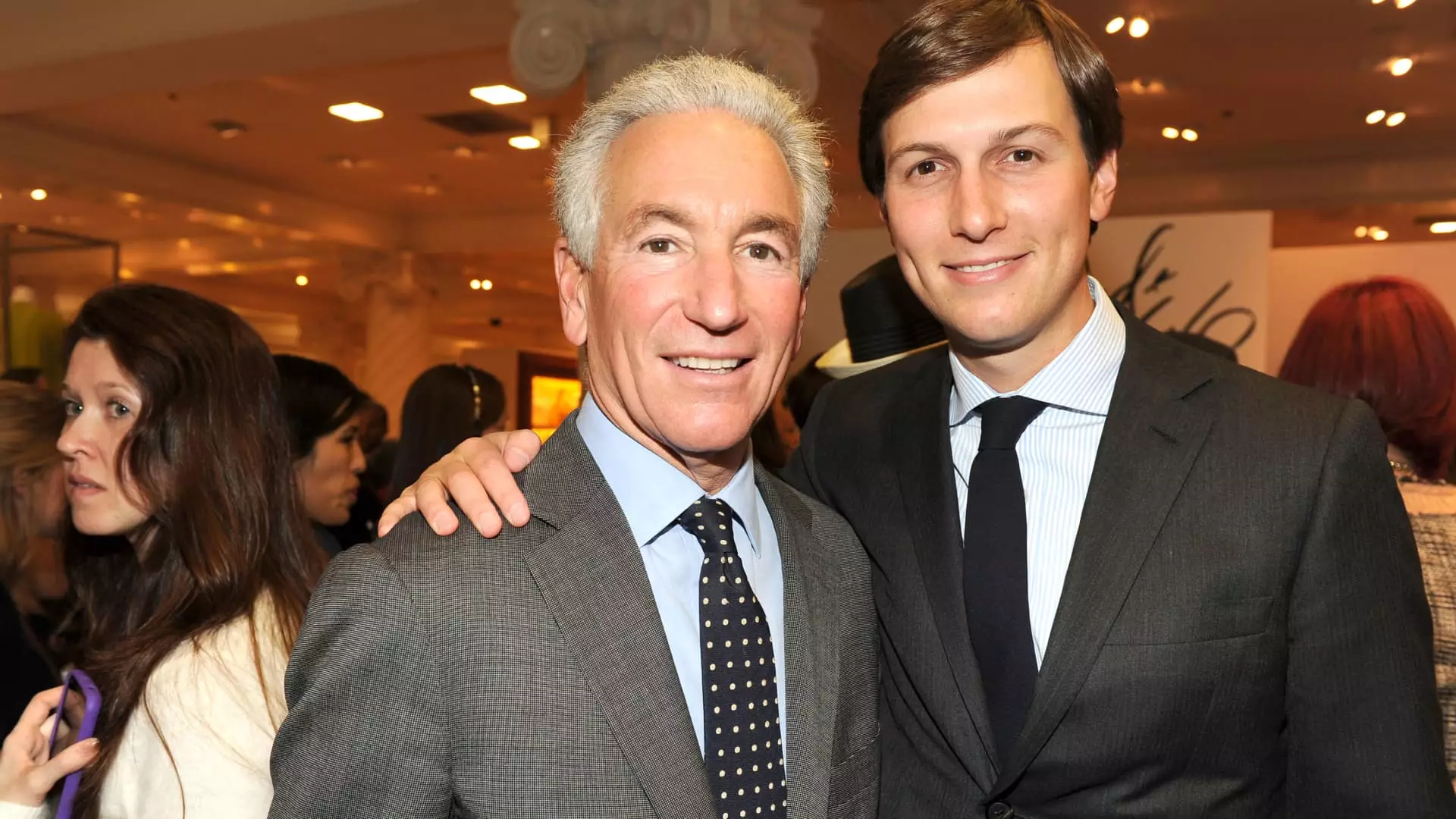In a surprising move, President-elect Donald Trump has announced his intention to nominate Charles Kushner, a prominent real estate developer and the father of Trump’s son-in-law Jared Kushner, as ambassador to France. This announcement, made via a post on Truth Social, garnered significant attention and has sparked discussions about the implications of such a decision. Trump praised Kushner in his statement, describing him as “a tremendous business leader, philanthropist, and dealmaker.” However, Kushner’s controversial past raises questions about the appropriateness of his potential appointment to this esteemed position.
Charles Kushner is best known for founding Kushner Companies, a major player in the real estate sector. Despite his business acumen, his reputation is marred by a notorious criminal history. In 2004, he was convicted on multiple charges including tax evasion and witness tampering, resulting in a sentence of two years in prison. One particularly egregious aspect of his past involved a vengeful scheme against his brother-in-law, who was cooperating with federal investigators. This incident involved the use of a hidden camera and a hire of a prostitute, demonstrating a level of misconduct that many in the legal field find reprehensible.
Such a background poses ethical dilemmas for his potential nomination as ambassador. Critics argue that appointing someone with a history of serious criminal behavior to a high-ranking diplomatic position sends a troubling message regarding standards of integrity and responsibility in public service. By nominating Charles Kushner as ambassador, Trump may inadvertently undermine the integrity of diplomatic appointments at a time when trust in government officials is crucial.
The personal connections between Trump, Kushner, and other political figures deepen the controversy surrounding this nomination. Jared Kushner, Charles’s son, served as a senior advisor to Trump during his presidency, which suggests a potential conflict of interest. Critics might argue that familial connections should not dictate appointments to public office. Furthermore, such dynamics could complicate diplomatic relations, particularly with France, by introducing an element of partisanship into what is traditionally a non-partisan role.
Moreover, the history of Chris Christie, the former U.S. attorney who prosecuted Charles Kushner, adds another layer to this intricate web. Christie, who has openly criticized both Kushner and Trump, previously suggested that Charles Kushner’s crimes were particularly abhorrent, labeling them as some of the most severe he encountered during his career. This revelation could further alienate Trump from potential allies, as Christie expresses concern over the legitimacy of the nomination process.
As discussions around Charles Kushner’s potential ambassadorship unfold, the potential impact on U.S.-France relations cannot be overlooked. Appointing an ambassador with such a controversial background could complicate diplomatic conversations and initiatives, straining relations with one of America’s key allies. Countries generally prefer their ambassadors to embody values of integrity and respectability, and Charles Kushner’s past may not align with these expectations.
While Charles Kushner’s nomination may appeal to Trump’s personal and familial ties, it raises significant ethical questions about the suitability of appointing someone with his criminal history to such a high-profile diplomatic role. The outcome of this nomination remains to be seen, but its implications could reverberate through diplomatic channels and alter the perception of accountability in political appointments.


Leave a Reply